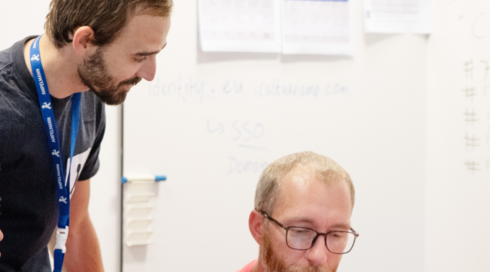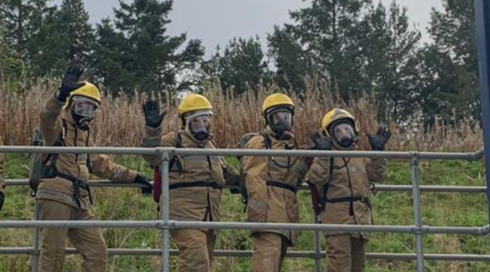2
Oil and Gas is an industry that uses a significant amount of heavy equipment to ensure every operation is safe and efficient with most sizable of these equipment being oil rigs and other offshore installations. Just like every other infrastructure, these installations have a lifecycle and a period of usefulness – and when their time is due, the Decommissioning industry ensures these installations are removed sustainably. As more and more governments mandate these installations to be removed as per strict regulations, Decommissioning becomes an increasingly important pillar of the ecosystem.
Rainier details how Petrodec was conceptualized and eventually formed as a relatively new company operating in the area: “We started Petrodec effectively in 2019 – it was born as an idea to assist companies with their Decommissioning needs on their behalf. With co-founder Stéphane Barc, along with a handpicked team of industry veterans, we developed Petrodec to what it is today.”
Rainier also explains how decommissioning requires industry specific assets and details several of the projects they completed to have the means to execute these tasks: “Petrodec is part of Perenco Services – so we took over a deactivated drilling rig from Perenco and converted it into a versatile multi-process decommissioning unit, ERDA. We have also reactivated a four-legged drilling jackup into a versatile and efficient well abandonment tool, HAEVA. We are operating two assets as we speak – and we are developing the third jack-up platform that will assist us with heavy lifting duties.”
Aligned with the needs of the Industry
We also have the chance to discuss with Rainier how decommissioning is a significant part of the Oil and Gas industry and has unique elements to it: “The Decommissioning industry needs to be a cost-effective operation for the rest of the industries – the market is constantly changing, influential companies in the Oil and Gas industry will be reluctant to allocate sources for Decommissioning and when the market is in a better shape, they don’t want to plug their wells and decommission production platforms in the first place.”
ldquo;On the other side, there are many platforms that are not directly involved in well production process – such as accommodation and compression platforms,” he continues. “They all have to be removed as well. If you do not decommission those, the regulators will still require you to maintain them. Additionally, there are older and less profitable production platforms still out there with some of them being at least 40 years old, there comes a time when they have to be sustainably removed.”
Regarding developments in the industry, Rainier again emphasizes the importance of being cost effective: “In Decommissioning, we want to decommission older assets by using older assets to ensure we can strike a balance between cost and effectiveness – however we are using newer technology tools while doing so. We have tested laser cutting, water jetting, hydraulic equipment, for example, to measure if we can further cut down the cost of the process. We also have a specific R&D department within Petrodec just to assess what can be further implemented.”
“Decommissioning of production platforms is almost as demanding as installing them – so there is always a need for decommissioning and sustainable recycling,” Rainier adds.
Decommissioning for the Future
As for the future? “We are ambitious to supply our services to third-party companies, initially in the southern North Sea, and we have done similar projects in Africa as well. We would like to expand our operations into various parts of the world once we get more experience in house and acquire more assets – we want to achieve our goals one step at a time.”
“We have to understand that the demand for Oil and Gas is already increasing – Oil and Gas industry will still be around for decades. The future of decommissioning is enormous, especially when you consider the amount of assets placed around the world. We already have two decades worth of assets in need of decommissioning installed across the globe.”
Rainier also details the type of Professionals they are constantly in the market for: “We have the offshore crew of course, and Atlas has been supporting us source Professionals such as Crane Operators, Roustabouts, Mechanics, Electricians and Deckhands. Lately, we have also been reaching out to some of these Professionals for permanent positions as the market gets tighter – we are looking for long term commitment and not for short term projects.”
Rainier also wants to touch upon the importance of the industry when it comes to having a sustainable, cleaner future for the next generation: “We clean up all the materials used by the Oil and Gas industry – not only steel and iron but also chemicals, asbestos, NORM and mercury.” Rainier provides impressive data about the nature of their work: “96% of all decommissioned materials will be recycled, making these operations sustainability efforts as well. We essentially ensure North Sea stays clean.”
.png)
.png)


